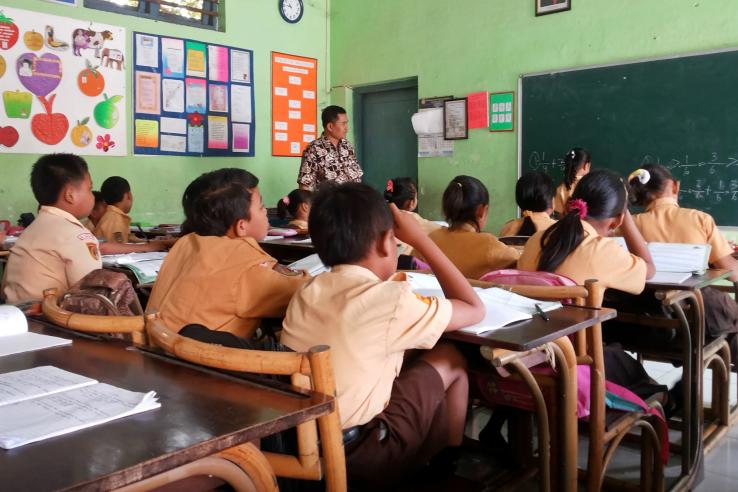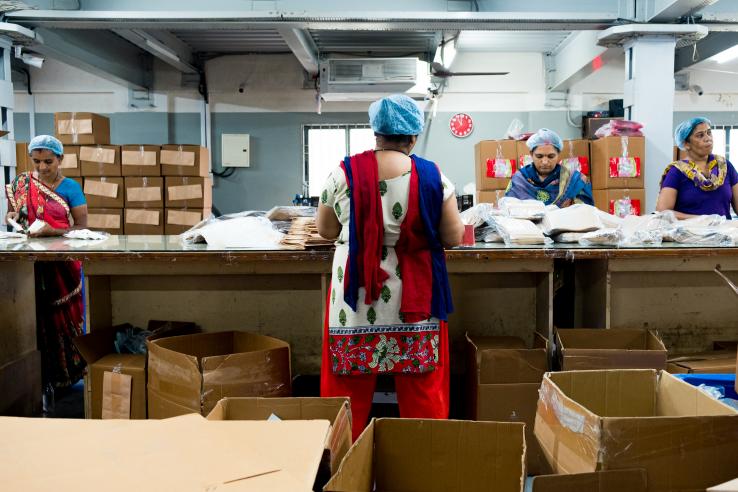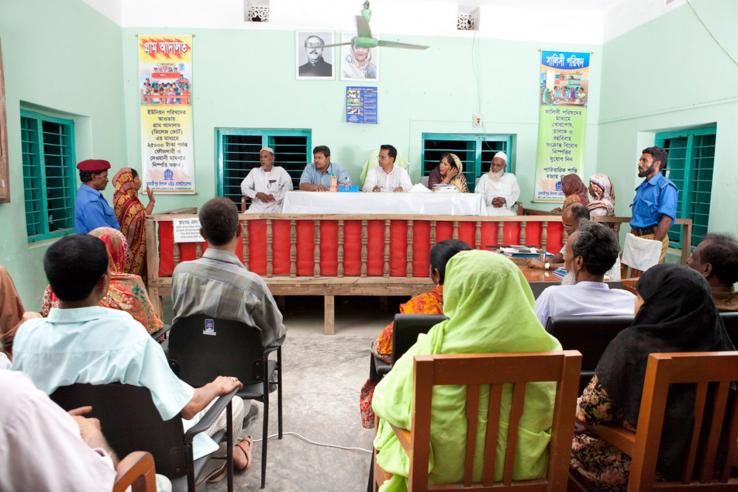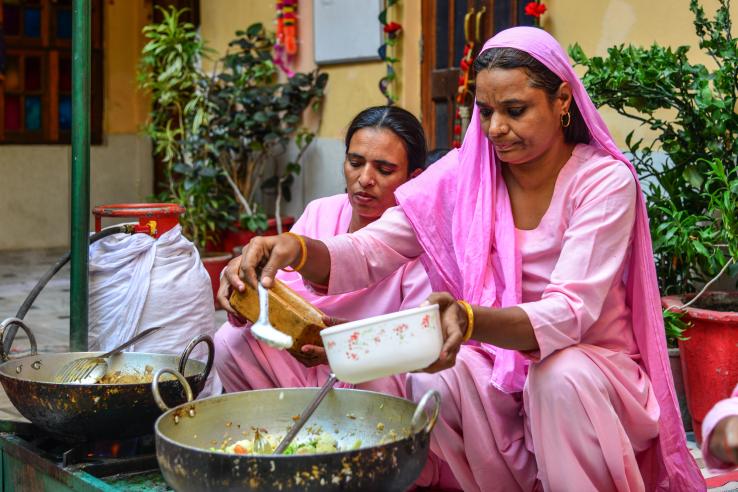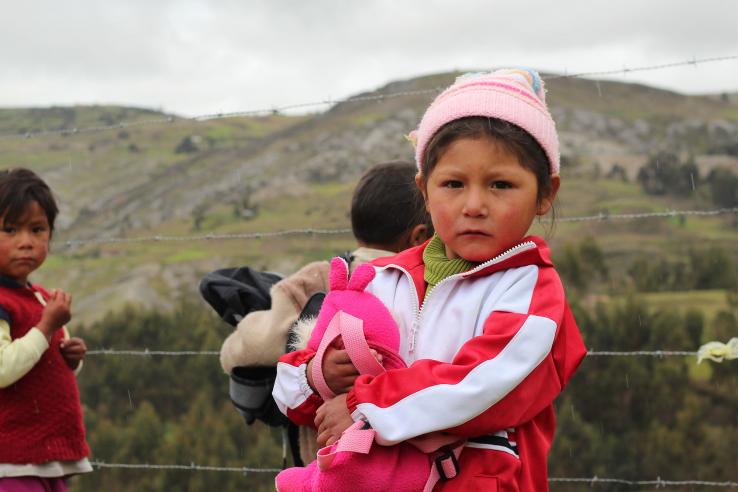Displaying 4171 - 4185 of 8489
Evaluation
Researchers conducted a randomized evaluation of the VIP:Voice, a digital election participation platform, to measure the impact of information and communications technologies on individuals’ political participation. Via the platform, researchers interacted with nearly 100,000 citizens, recruited citizen monitors in 38 percent of the wards of South Africa and deployed 347 citizen monitors to polling places. However, around 50 percent of participants dropped out at each subsequent, and more time-intensive, form of engagement requested via the platform.
Evaluation
Researchers partnered with the Susan Thompson Buffett Foundation to randomly offer scholarships to Nebraska high school graduates who applied for financial assistance. Initial results from the ongoing study indicate that scholarship offers increased college enrollment and persistence while shifting students toward more selective institutions. The effects were largest for students who had lower high school grades and ACT scores.
Evaluation
A large charitable organization in the United States conducted a series of direct mail appeals for donations using different identity primes in 2009-2010. Researchers found that priming a potential donor’s identity as either a previous donor to charity or as a member of their local community generated more donations.
Evaluation
Researchers partnered with banks in three countries to see if removing the costs to opening basic bank accounts would lead to more households opening and using bank accounts. Overall, use of the accounts was low across all three countries, and being offered a free, basic bank account had no impact on savings, expenditures, health, or education. These results suggest that policies focused only on expanding access to basic bank accounts that already exist in given location are unlikely to improve welfare, on average.
Evaluation
Herders may change their herding practices to better sustain the land if they own rights to it, which could also translate into bigger and healthier animals, and more income for the herders. In this study, carried out near two cities in Mongolia, researchers evaluated the impact of private property rights on land use and herder income.
Evaluation
Researchers examined the medium-term impacts of a large-scale CCT program on health, education, and economic outcomes in Indonesia. Six years following the introduction of cash transfers, the program resulted in reductions in stunting, increased rates of childbirth in the presence of trained birth attendants, and increased school enrollment.
Evaluation
Researchers found that, for female sewing workers in the largest private garment exporter in India, participating in a training program improved their soft skills and productivity and the firm experienced high financial returns.
Evaluation
Researchers studied the impact of providing information about fuel costs on consumers’ car purchases. Providing information about fuel costs had no effect on the fuel efficiency of the vehicles consumers chose to buy.
Evaluation
The government of Bangladesh is trying to strengthen local justice systems in rural areas by establishing close-to-home, low-cost village courts that would deal with minor, non-criminal cases. Innovations for Poverty Action is working with researchers to evaluate the impact of a program to improve the village court system on access to and quality of justice for marginalized people, as well as socioeconomic and welfare outcomes.
Evaluation
Saving money and borrowing money are often thought of as two very different financial behaviors. However, in many low- and middle-income countries people may use these products for the same reasons. The National Rural Support Programme in Pakistan and researchers randomly offered female microfinance customers a commitment savings product or a credit product three times over the course of three weeks to test how the design of the financial product impacted take-up. They found that many women had an interest in making a large lump-sum purchase or investment, but simultaneously struggled to save. More than half of women used both a savings product and a credit product over the course of the three weeks, suggesting the two are used interchangeably.
Evaluation
Small and medium enterprises are thought to be an important source of innovation and employment in developing countries, but entrepreneurs face a number of barriers to expanding their businesses. In Colombia, researchers are examining the impact of a combination of training, mentorship, and networking interventions on business outcomes.
Evaluation
Researchers conducted a randomized evaluation to assess the role of employer behavior in generating "negative duration dependence"—the adverse effect of longer unemployment spells—by sending fictitious resumes to real job postings in 100 U.S. cities. Callback rates declined sharply over the first eight months of unemployment, especially in tighter labor markets. The findings are most relevant to young, inexperienced job seekers and may not generalize to older workers.
Evaluation
In Peru, researchers evaluated the impact of a tailored inquiry- and problem-based learning approach on preschoolers’ performance in math. The program improved overall mathematics outcomes, which persisted for some content areas even one year after the program ended.
Evaluation
Researchers from Yale University conducted a randomized evaluation to examine the effects of political party identification on political attitudes and opinions. Participants in the study who received a printed letter indicating that they must register with a political party to vote in an upcoming election were more likely to affiliate with a party, change their views on political issues, and change their voting behavior.




